
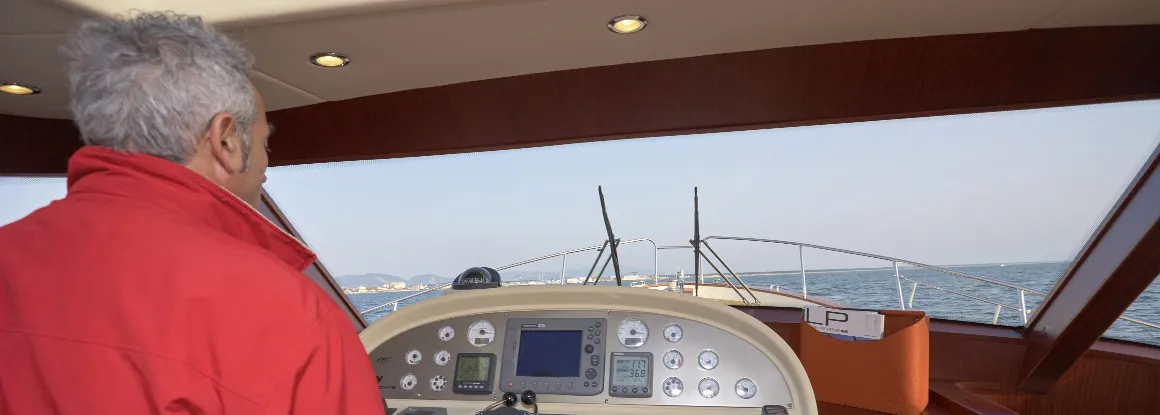
BTM
Bridge Team Management
Based on the recommendations of IMO Model Course 1.22, the course attempts to satisfy the criteria of STCW Code Table A-II/1, Table A-II/2, and Section A-VIII. The course gives masters and officers in command of a navigational watch advice on the abilities needed to manage a bridge team effectively.
COURSE CONTENT:
- Relation with team worker
- Handle the equipment with care
- Knowledge of flag and signals
- Study the chart for guideline
- Connection with engine room worker
DURATION: 3 DAYS
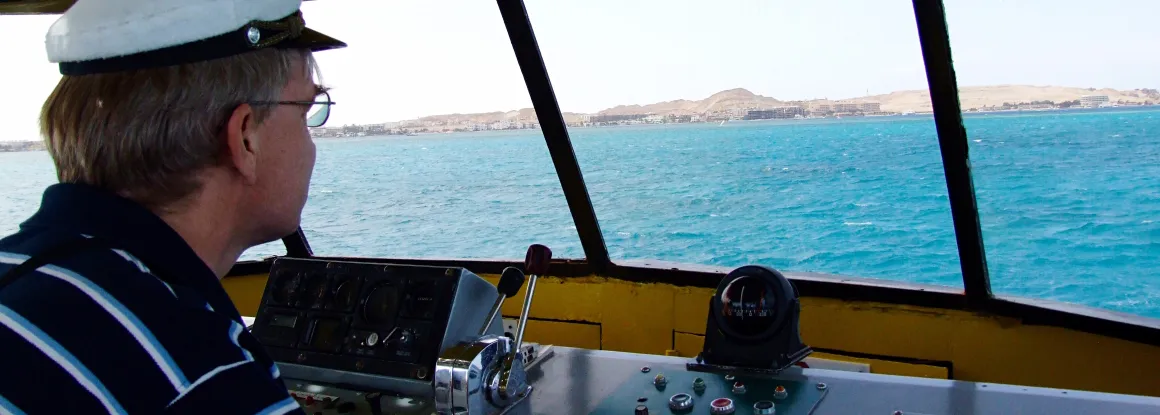
BRM
Bridge Resources Management
The term "bridge resource management," (BRM) or "maritime resource management," refers to the effective management and utilisation of all human and technological resources available to guarantee the safe completion of a vessel's voyage. The goal of this program's inception in 1993 was to solve organisational and human errors that can result in incidents during marine operations.
COURSE CONTENT:
- Familiar with bridge equipment’s
- Utilise the man power with healthy relation
- Connection with engine-room performance
- Simple knowledge of technical work
- Flag knowledge and response
DURATION: 5 DAYS
.webp)
MLC Familiarisation (2006)
MLC Familiarisation (2006)
The purpose of the training is to familiarise and evaluate Deck Officers who will be assigned to large boats in the near future. It will also provide them with the knowledge and abilities necessary to manage large vessels under a variety of scenarios.
COURSE CONTENT:
- Introduction & Purpose of MLC Convention, 2006
- Regulation 1: Minimum Requirement for Seafarers to Work on Ships
- Regulation 2: Conditions of Employment
- Regulation 3: Accommodation, Recreational Facilities, Food & Catering
- Regulation 4: Health Protection, Medical Care, Welfare and Social Security Protection
- Regulation 5: Compliance and Enforcement
DURATION: 2 DAYS
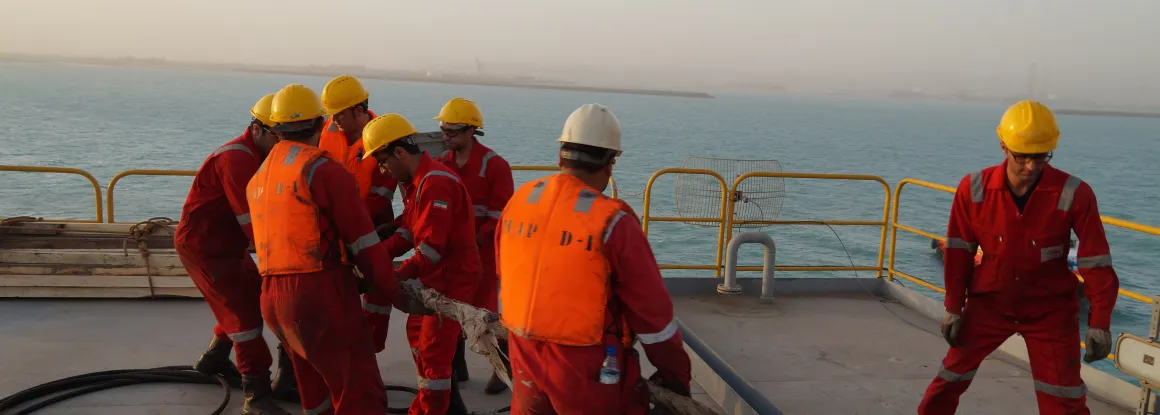
Accident Incident Prevention Certificate Course 1
Accident Incident Prevention Certificate Course 1
This certified accident incident investigator training course supplies comprehensive training on checking out health and wellness.
COURSE CONTENT:
- Importance of Workplace Safety & Health.
- Most common types of Accidents on Board Ships.
- Hazard Analysis, Tool Box Talk & Work Planning.
- Use of PPE to Prevent Accidents.
- Fatigue Management
- Importance of Drug & Alcohol Policy in Preventing Accidents.
- Work permit for any work.
DURATION: 2 DAYS
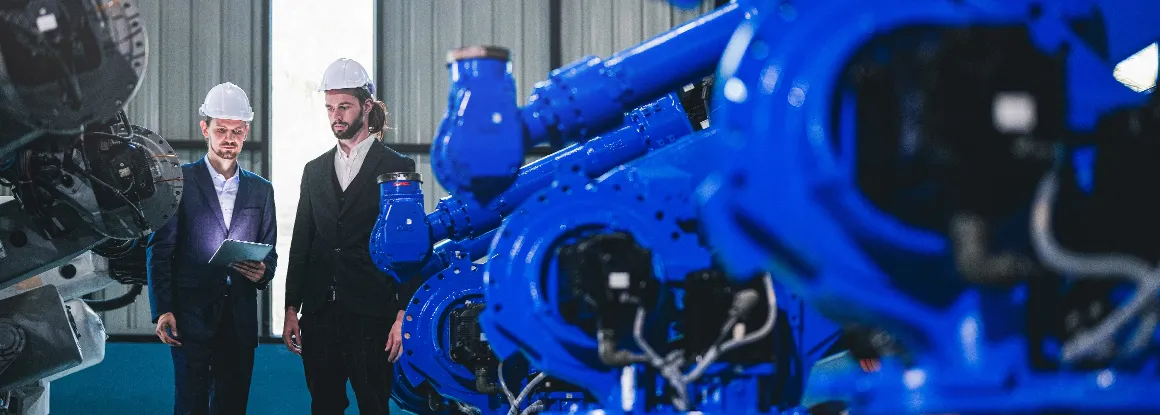
ERM
ERM
All maritime engineers who hold a certificate as a maritime engineer or as a ships electrician must take the ERM course.
Do you require additional training in human factors at sea? The majority of near-misses and accidents are brought on by a lack of human factor awareness.
COURSE CONTENT:
- The system approach
- Safety of Operations
- Environmental Issues
- Co-operation and Teamwork
- Situational Awareness Management
- Decision –Making
- Human Factors and Human Error
- Crisis Management and Human Behaviour
- Risk Assessment and Risk Management
- Leadership and Workload Management
- Identification of an Breaking Error Chains
- Efficient use of resources and delegation
- Communications
- Planning and Prioritizing
- Identification of Cause of Problem and Timely Correct Response
- Methodical and Logical Approach to Fault Diagnosis and Problem Solving
- Identification and Justification of ‘Assumptions’
- Emergency Preparedness
- Contingency Planning
DURATION: 3 DAYS

Engine Room Team Management
Engine Room Team Management
This course, which is based on the instructions of IMO Model Course 2.07, has been created to satisfy the criteria of STCW Regulation I/12, Sections A-III/1&2 and A & B- VIII/2.
Personnel with an engineering background are the target audience for this training. It is appropriate for engineering officers, engineers getting ready to move up to senior positions, managers and superintendents of firms. The programme can be adjusted to fit the needs of a particular shipping enterprise.
COURSE CONTENT:
- Knowledge of main engine
- Knowledge of different type of equipment’s such as generator, boiler, pump, valves, filter and fuel.
- Utilisation of man power with guideline
- Knowledge of alarm and light signal
- Handle the bad situation and silence work
DURATION: 3 DAYS

Behaviour Based Safety
Behaviour Based Safety
The course on behaviour-based safety will provide you an understanding of what is now known about human error and how to prevent it. The course focuses on human errors associated with undesirable behaviours (habits), their causes, and practical solutions. Generally speaking, you will discover what causes bad behaviour and how to stop or change it. You'll discover particular methods and resources that you can implement in your establishments to manage daily routines and behaviours. However, the course also covers a quick summary of all aspects of reducing human error, not simply those that are connected to behaviours or habits, in order to put the issue of habits and behaviours in perspective.
COURSE CONTENT:
- Familiar with working schedule.
- Knowledge of equipment’s.
- Know the number of workers and their behaviour.
- Language of general workers.
- First-aid facilities and rescue culture.
- Implementation of Safety Culture
- Safety Intervention Techniques
DURATION: 2 DAYS
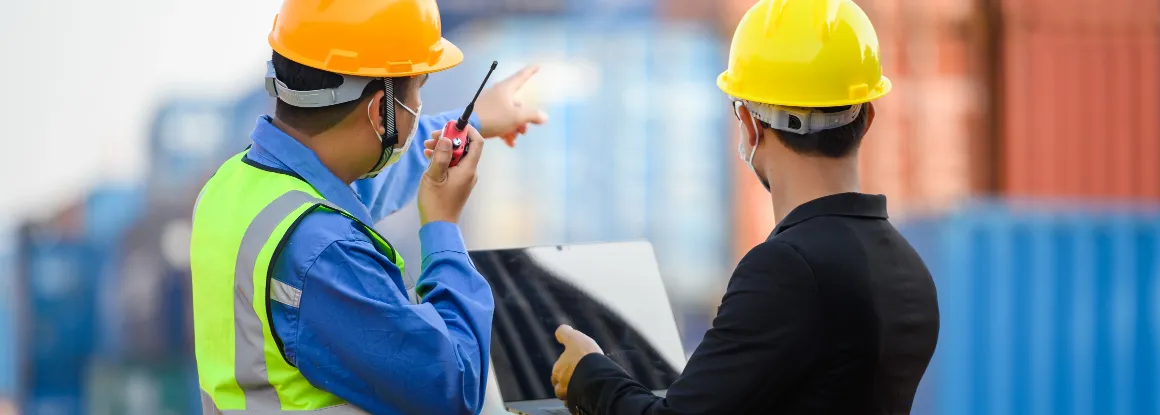
Maritime Security Awareness
Maritime Security Awareness
The knowledge learned from this course will enable personnel not assigned to designated security duties in connection with a Ship Security Plan (SSP) to improve ship security in compliance with the requirements of the ISPS Code, Section A-VI/6-1 and Table A-VI/6-1 of the STCW Code, as amended, and Chapter XI-2 of SOLAS 74 as amended.
COURSE CONTENT:
- Introduction to Maritime Security Awareness
- Legislation for Maritime Securities
- Maritime Security Levels
- Maritime Security Plan
- Security Control & Protection Measures
- Drills & Exercises
DURATION: 3 DAYS

Merchant Ship English Speaking
Merchant Ship English Speaking
The majority of ships are run by shore personnel and multinational crews. To guarantee the safety of crews and vessels, effective communication is required by the IMO STCW Convention, SOLAS, ISM Code, and other international standards.
All ship types' crews must speak English at a level appropriate for their rank; yet, many seafarers speak it as a second or third language, and poor communication is a major contributing factor to maritime mishaps.
COURSE CONTENT:
- Give seafarers understanding of language SMCP.
- Immerse learners in emergency situations where respond correctly.
- Allow learners to record and re-record their responses and pronunciation of difficult words and phrases.
- Standard marine communication phrases (SMCP).
- M V MARLIN (Five parts English)
DURATION: 5 DAYS
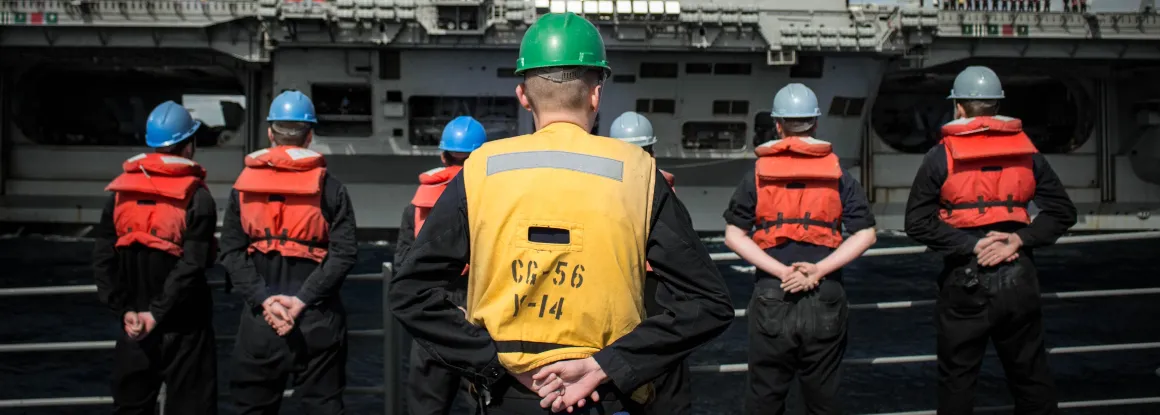
Passenger - Ship Familiarisation
Passenger - Ship Familiarisation
The majority of ships are run by shore personnel and multinational crews. To guarantee the safety of crews and vessels, effective communication is required by the IMO STCW Convention, SOLAS, ISM Code, and other international standards.
All ship types' crews must speak English at a level appropriate for their rank; yet, many seafarers speak it as a second or third language, and poor communication is a major contributing factor to maritime mishaps.
COURSE CONTENT:
- Passenger psychology and relation to passengers.
- Different sections of passenger ships like floor, galley, and passenger movement place.
- Passenger crowd handling with a cool brain.
- Knowledge of first-aid.
- General awareness about critical situations.
- Knowledge of pollution control and water cleanses.
- Good communication in the English language.
DURATION: 2 DAYS

MARPOL Awareness
MARPOL Awareness
A five-day MARPOL Awareness course offered by Meridian Marine Academy Solutions is important for individuals who need to understand the obligations, responsibilities, and consequences of non-compliance with the MARPOL Convention.
Company management, senior ship officers, masters, designated persons ashore (DPAs), superintendents, auditors, regulators, and everyone else involved in ship inspections are the target audience for this training. This course may be offered at the company's location or at another globally common site.
COURSE CONTENT:
- Relation to ocean environment.
- Pollution control under international guideline.
- Introduction to the MARPOL convention 1973-1978.
- Check different international meeting about pollution.
- Understanding of each annextures.
- Knowledge of different code.
DURATION: 5 DAYS
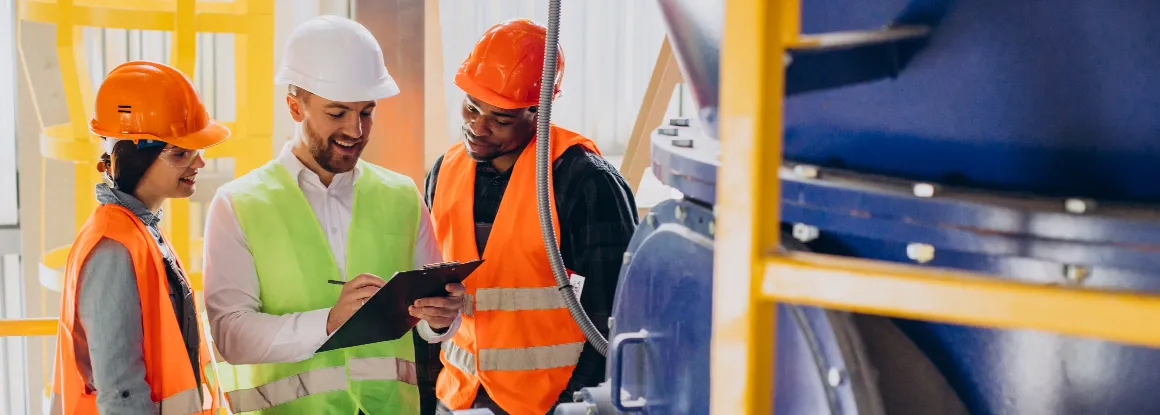
Risk Assessment Course Certificate
Risk Assessment Course Certificate
The goal of the Risk Assessment and Mitigation in Marine Engineering course is to give merchant navy maritime professionals the skills they need to recognise, evaluate, and successfully manage hazards related to their operations. In addition to developing ways to reduce potential dangers, participants will learn about different risk assessment processes and tools and comprehend the significance of proactive risk management. Upon completion of this course, participants will possess the necessary skills to improve safety, reduce operational interruptions, and maximise decision-making within the field of maritime engineering.
COURSE CONTENT:
- Meaning of risk.
- Risk assessment with condition.
- What is hazard. How to identify hazard.
- Type of risk assessment.
- Risk estimation.
- Controlling serious risk with precaution.
DURATION: 3 DAYS
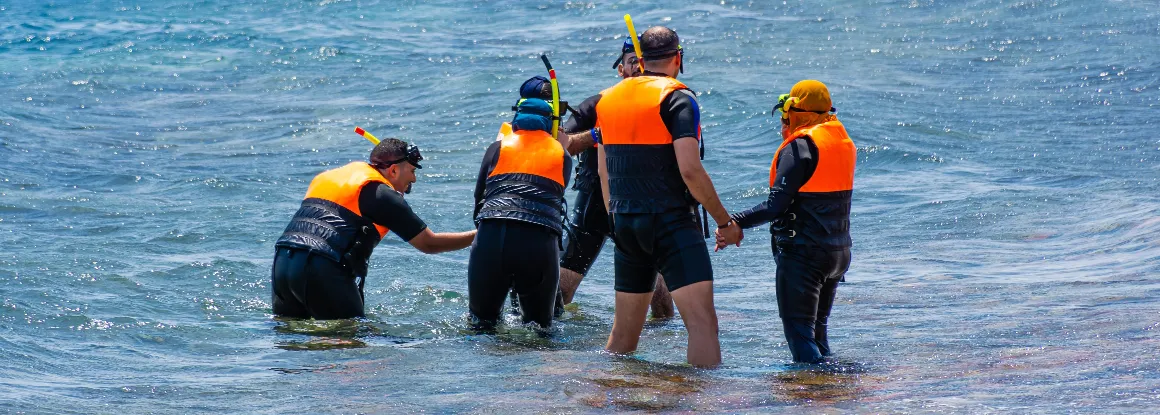
Marine Environmental Awareness (1)
Marine Environmental Awareness (1)
To give maritime experts excellent information about the marine environment and to provide training for implementing new environmental standards.
The course provides the mandatory requirements, means and facilities for Marine Pollution Prevention required as per Section A-II/1 of Chapter II, A-III/1 and A-III/6 of Chapter III of the STCW.
The course is based on IMO “Model Course 1.38 – Marine Environmental Awareness – 2011” and the National Maritime Standard.
COURSE CONTENT:
- Familiar with ocean aquatic life.
- Port condition and working culture.
- Marine environment and pollution.
- Different type of pollution.
- Precaution and international guide-line.
- Stope the accident and save the living things.
DURATION: 3 DAYS
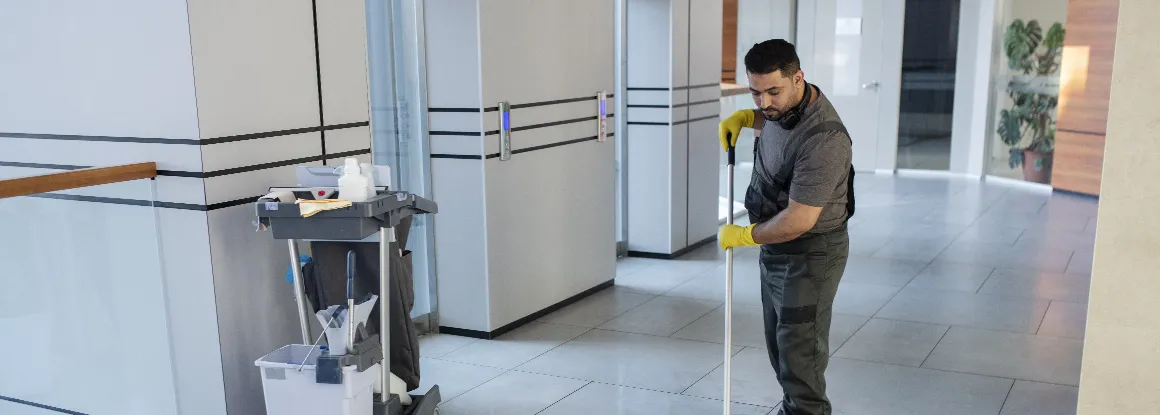
Housekeeping & Laundryman
Housekeeping & Laundryman
Retaining a high standard of cleanliness and comfort for both our staff and visitors is essential to our warm hospitality experience. While our laundry staff cleans visitor clothes, crew uniforms, and linens for restaurants and hotel rooms, our housekeeping staff takes care of cleaning the public areas, guest rooms, and crew areas.
COURSE CONTENT:
- Introduction to Housekeeping
- Maintaining Good Housekeeping Practices Onboard
- Maintaining Galley and Dining Area Conditions
- Bilge Management Area Maintenance
- Cleaning & Sterilizing Vessels
- Laundry Process
- Maintenance of Laundry Equipment
- Fibres & Fabrics
DURATION: 3 DAYS
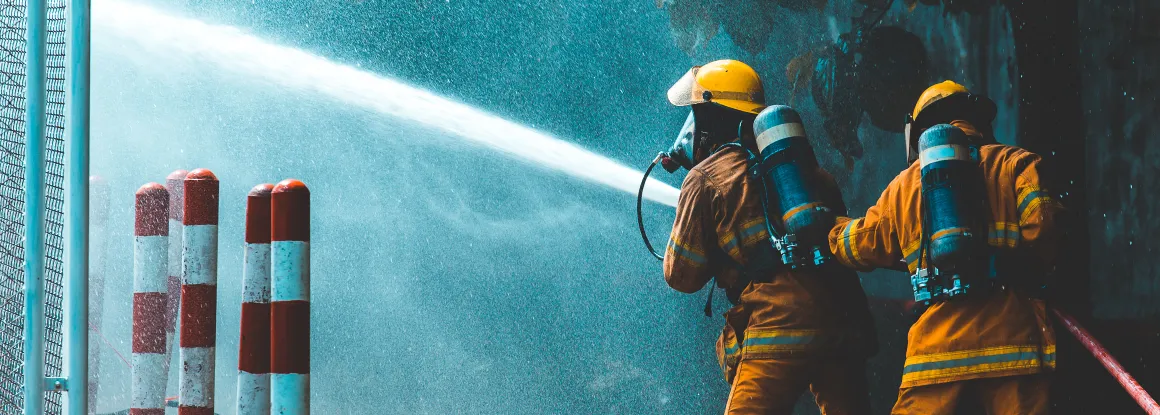
HAZMAT
HAZMAT
To provide course compliant with, and meeting the requirements of, the International Maritime Dangerous Goods code, 2020 Edition for the shore-side staff involved with dangerous goods.
This course provides training directed at the Mariner, Port & Terminal Handlers, Freight Forwarders, Shippers, Manufacturer and the Consumer in understanding the terminology, classification, packaging, labelling of Dangerous cargoes. The course covers the complete handling processes from start including documentation, Emergency Response in case of an incident and Medical First Aid.
COURSE CONTENT:
- Introduction & Classification of HAZMAT
- HAZMAT Protection Levels
- Dangers of Hazardous Materials
- Safety Handling of Hazardous Materials
- Dangerous Good Manifest
DURATION: 5 DAYS

Food Safety & Hygiene
Food Safety & Hygiene
This course complies with MLC 2006 Regulation 3.2, which covers food and catering, food and personal hygiene, food storage, stock control, environmental protection, and health and safety in the catering industry.
COURSE CONTENT:
- Practice Safe Shopping
- Food Cleanliness
- Maintaining Food Temperature
- Cleanliness of Galley, Mess rooms and Provision Stores
- Maintaining Personal Hygiene
- First in - First Out
DURATION: 2 DAYS

Food Handling
Food Handling
This course complies with MLC 2006 Regulation 3.2, which covers food and catering, food and personal hygiene, food storage, stock control, environmental protection, and health and safety in the catering industry.
COURSE CONTENT:
- Introduction to Food Handling & Handlers.
- Impact of Food-Borne Illness.
- Understanding Food Law.
- Food Safety Hazards & Contamination.
- Food Preservation, Storage and Temperature Control.
- Personal Hygiene.
- Hygienic Premises.
DURATION: 3 DAYS
.webp)
Fast Rescue Boat (F.R.B.)
Fast Rescue Boat (F.R.B.)
Fast Rescue Craft / Boat course is designed as per IMO guidelines. It is to train personnel to operate FRC/FRB, which is mandatory for deployment in offshore field as per IOGP and on RO-RO passenger vessels as per IMO.
Rig Contingency Plans will describe the actions, relevant for the type of vessel and equipment used, to take in the event of a calamity on board a vessel. One of the topics covered is the emergency procedure/ plan of rescue and treatment of casualties, including the use of FRB’s.
The emergency procedure will describe initial actions to take by the Master, FRB coxswain and crew before, during and after launching an FRB. Another topic will be the rescue, treatment of and transfer to safety of casualties after recovery. Crew needs to be trained accordingly and the procedure/plan will be revised when there are changes in legislation or best practices.
COURSE CONTENT:
- Familiar with fast boat and ocean
- Use of signal and response
- Team work habits
- Give the support in positive sense
DURATION: 2 DAYS

Engineering Knowledge for Deck Officers
Engineering Knowledge for Deck Officers
Deck officers in the marine industry need to understand basic engineering principles, such as how to operate complex hydraulic, pneumatic, and electrical equipment on modern ships.
Introduction about the diesel engine and petrol engine (2 stroke and 4 stroke) and familiar with supporting auxiliary like – pump, filter, valves.
Knowledge of piston and main engine parts.
Familiar with temperature of main engine room and environment.
COURSE CONTENT:
- Ship’s Engine Working Principle & Its Types
- Marine Engine Air Starting System
- Turbo Charging, Scavenging and Crankcases Explosion
- Marine Boilers, Oily Water Separator and Fresh Water Generator
- Sewage Treatment Plant, Purifier and Marine Incinerator
- Steering Gear System and Generator
DURATION: 3 DAYS
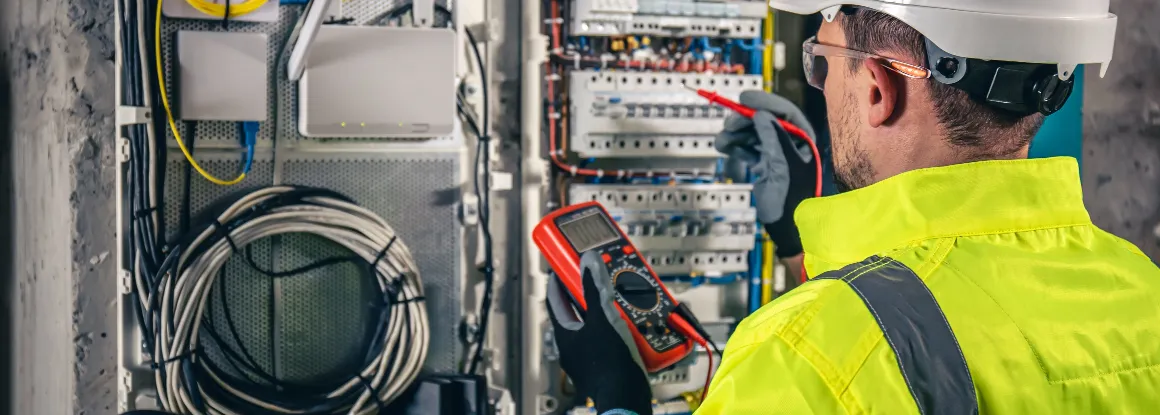
Electrical Maintenance
Electrical Maintenance
The expected outcome of this course is that the participants will be able to:
- Identify common electrical hazards and safety precautions in electrical systems.
- Demonstrate circuit testing using electrical measuring instruments.
- Describe the characteristics and operation of generators.
- Describe the characteristics of electrical switchboards.
- Identify instrumentation and automation applications on board.
- Determine different types of electric motors and their applications.
- Interpret and construct electrical circuit diagrams.
- Assemble simple motor starter and troubleshoot simple and complex motor controls.
- Demonstrate preventive maintenance and repair electrical equipment.
COURSE CONTENT:
- Fundamentals of Electrical Technology
- Faulty Finding and Troubleshooting Exercises
- Shipboard Electrical Distribution System
- Direct On-Line Starters
- Proper Maintenance & Care of Electrical Equipment’s.
- Electrical Measuring Instruments.
- Star-Delta Starting Circuit.
- Care And Maintenance of MSB & ESB
- Personal Safety Awareness When Working with Electrical Installation.
DURATION: 2 DAYS
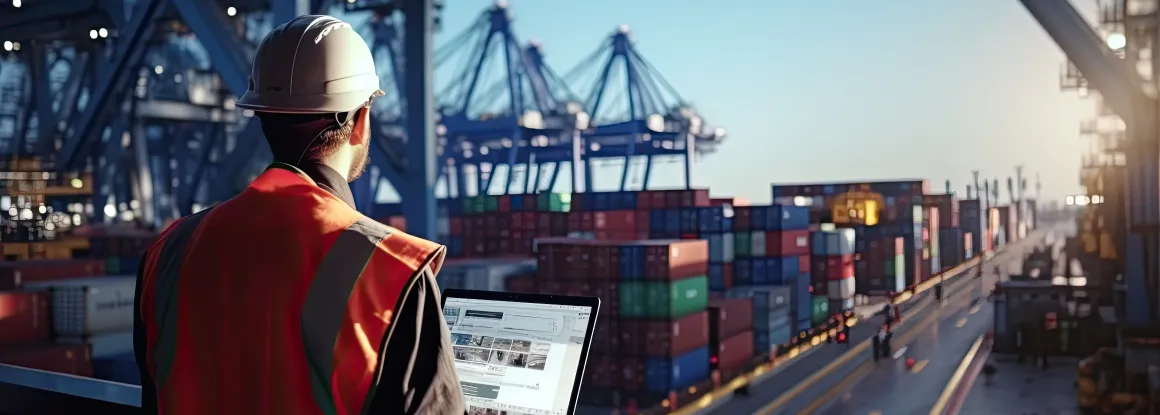
Dynamics of Port State Control
Dynamics of Port State Control
Over time, Port State Control inspection has gained international recognition as a crucial component of the marine sector. It is done to confirm that, in a national port, foreign ships, their crew habits, and the equipment they have on board comply with the international standards. This course provides participants with particular knowledge on how to prepare for and successfully complete a Port State Control Inspection by covering the in and out of the inspection process.
COURSE CONTENT:
- Relation to international organisation.
- Basic law of marine service on port with different countries.
- Investigation by international organisation on port.
- Control the ship crew with international regulation.
- Officially dynamic running and controlling the crew with log book.
DURATION: 3 DAYS

Crew Safety
Crew Safety
The shipping industry bears the annual cost of millions of dollars due to accidents and injuries. Does our team know how to operate safely, correctly, and appropriately in every scenario? In general, the answer is "no", but it may be primarily "yes".
Given the hazardous nature of their employment, whether they are operating on deck, in holds, tanks, or the engine room, this training is designed exclusively for ratings. The goal of the crew safety course is to educate and advise participants on the most up-to-date industry standards that should be adhered to when working aboard a ship. The Code of Safe Working Practices for Merchant Seamen has been cited as a source for the subjects covered.
COURSE CONTENT:
- Safety awareness with P.P.E
- Incidents, accidents and their causes.
- Work permit issue, terms and condition.
- Pollution prevention.
- Security familiarisation as per ISPS code B sec 13.3.
- Knowledge of life-boat, life raft and immersion suit.
DURATION: 2 DAYS
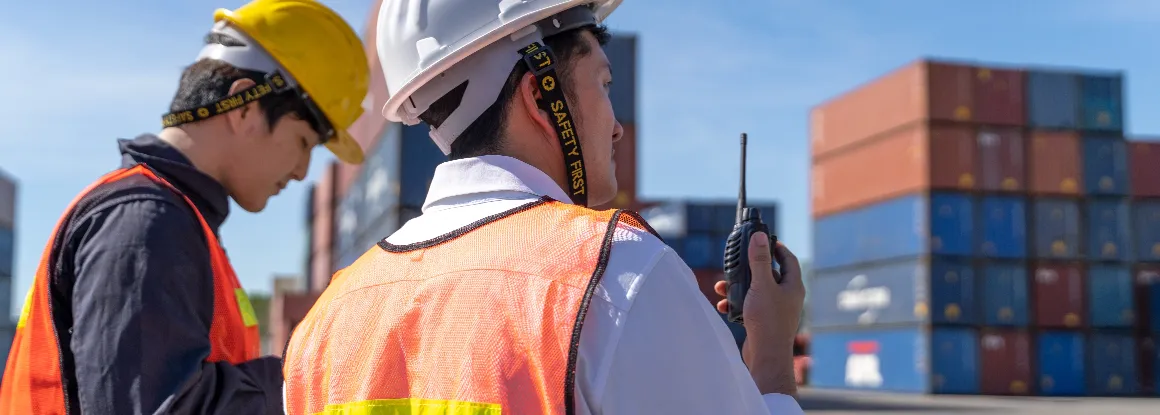
ISPS Awareness
ISPS Awareness
The 2 days ISPS course on Proficiency in Security Awareness has been designed to fulfil the demands of the STCW Convention and Code, as amended by the 2010 Manila amendments. When the training or instruction is finished, an approved STCW Certificate of Proficiency is issued, satisfying the requirements of Section A-VI/6 paragraph 4 of the modified STCW code. Additionally, this training may be offered on company property or at any other globally agreed-upon site.
COURSE CONTENT:
- Introduction to the ISPS Code
- Maritime Security Levels
- Port Facility Security Plan (PFSA)
- Declaration of Security
- Training, Drills and Exercises
- Knowledge of safety equipment’s.
DURATION: 2 DAYS
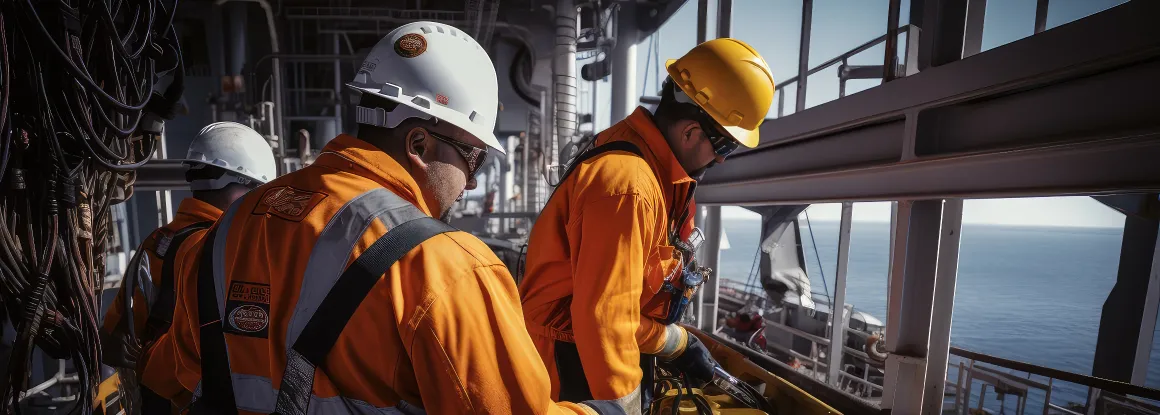
ISM Awareness
ISM Awareness
The ISM Code serves as an international standard for the safe operation and management of ships as well as for the prevention of pollution.
By resolution A. 443(XI), the Assembly had already sent an invitation to all Governments to take the appropriate action to ensure that the shipmaster could carry out his duties in a manner that ensures maritime safety and the preservation of the marine environment.
COURSE CONTENT:
- Introduction to the ISM Code (for the same operation of ship & for pollution prevention)
- Knowledge of the STCW’78 Convention, as amended
- Contents of the ISM Code
- Knowledge & Understanding of each element of the ISM Code
- Execute the SOLAS amended properly.
DURATION: 3 DAYS
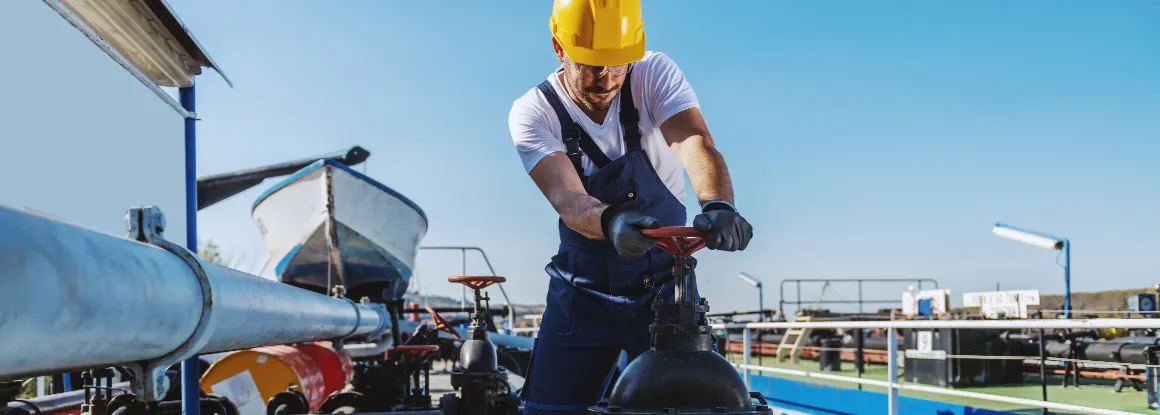
Pumpman (Oil Tanker And Chemical Tanker)
Pumpman (Oil Tanker And Chemical Tanker)
The goal of the Pump-man course is to give the theoretical and practical know-how as well as the abilities needed to run, maintain, and fix the machinery involved in handling liquid freight. Knowledge of loading and unloading of oil and comical. It has been repeatedly demonstrated that a pump man is an absolute necessity when working on oil rigs because they ensure the continuous and seamless operation of all the pipelines installed in oil tankers and oil rigs. Being the primary person in control of an oil rig's pipelines and oil tanker vessels like VLCC, the pump man's job necessitates constant attention to detail and awareness. His responsibility is to make sure that all of the drilling or transported oil flows into the designated.
COURSE CONTENT:
- Familiar with oil tanker and chemical tanker.
- Knowledge of different types of valves and pumps.
- Loading process and discharging process.
- Maintenance of line and bypass.
- Sound knowledge and cleaning process.
- Contaminant knowledge and cleaning of pipeline.
DURATION: 2 DAYS
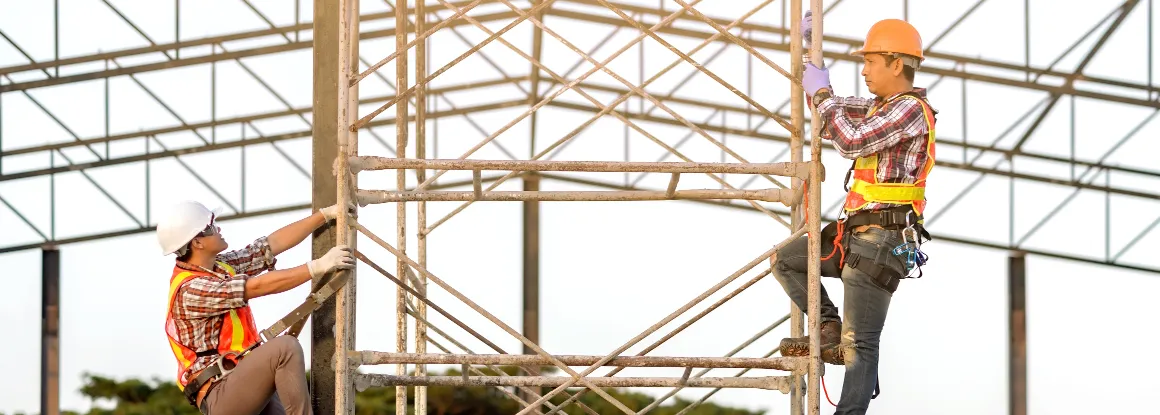
Scaffolding
Scaffolding
The purpose of the scaffolder training is to teach those who operate on offshore platforms how to inspect all scaffolding equipment both before and after use. Take down any scaffolding gear and store it in the proper location. Arrange and get ready the ground for the scaffolding to be erected. Build a gin wheel and a modular scaffold. Scaffold can be adjusted and fixed as needed.
The goal of this course is to give participants the information, competence, and abilities they need to create scaffold structures safely.
COURSE CONTENT:
- Familiar with ground levelling and equipment.
- Knowledge of different types of loads, dead load, live load and total stress.
- Different types of support, railings and stair space.
- Calculation by formula total stress = dead load + 4 x live load.
- Create working platform for height work.
DURATION: 5 DAYS
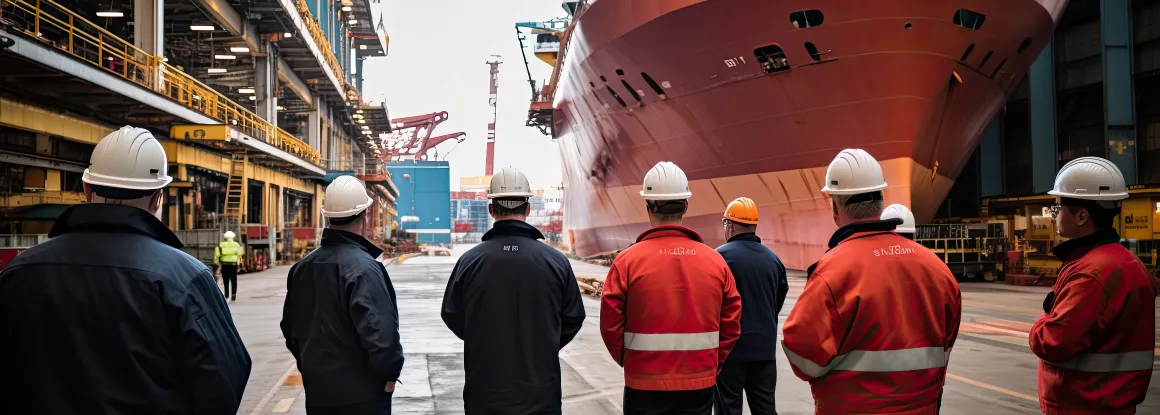
Crowd and Crisis Management (Passenger-Ship)
Crowd and Crisis Management (Passenger-Ship)
Those who are in charge of passenger safety in an emergency and are on muster lists. With subsequent modifications, the course is authorised in accordance with STCW 78 (Manila 2010).
COURSE CONTENT:
- Familiar with passenger ship and human behaviour.
- Knowledge of different section of passenger ship like deck, galley, room and movement area.
- Handle the crowd in silence mod.
- Support in emergency to passenger and management of ship.
- Some knowledge of fire-fighting and first-aid.
- Some knowledge of life-raft and life board.
DURATION: 2 DAYS
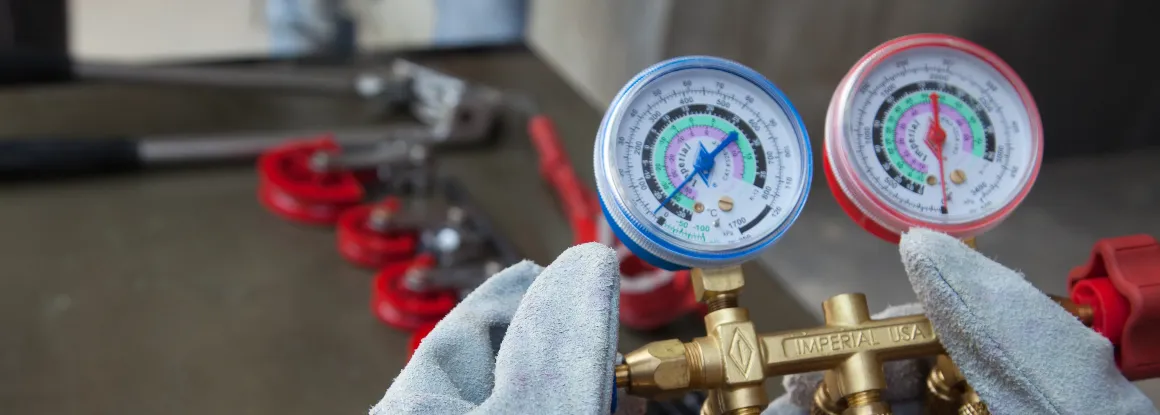
AGT
Authorised Gas Tester
In particular, permit-regulated confined places, as well as before and during hot work for both open and enclosed spaces, are crucial areas where the role of the Authorised Gas Tester is crucial for verifying and testing safe working conditions. It will make it possible to accurately read and understand data acquired from the available gas detection methods.
COURSE CONTENT:
- Knowledge of toxic gas and their detector.
- Detector of poisonous and toxic gas by gas tester.
- Some knowledge of H2S detector and oxygen percentage tester.
- Handle the gas tester and fill out the survey form.
- Knowledge of confined spaces, (close areas).
- Calibration of AGT equipment.